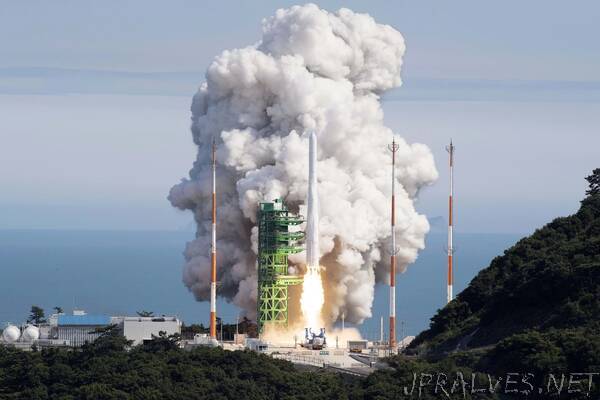
“The Nuri rocket’s second launch made South Korea the 10th country to place a satellite with its own technology.
South Korea conducted its first successful satellite launch using a domestically developed rocket on Tuesday, officials said, boosting its growing aerospace ambitions and demonstrating it has key technologies needed to launch spy satellites and build larger missiles amid tensions with rival North Korea.
The three-stage Nuri rocket placed a functioning “performance verification” satellite at a target altitude of 435 miles after its liftoff from South Korea’s space launch center on a southern island, the Science Ministry said.
The satellite transmitted signals about its status to an unmanned South Korean station in Antarctica. It is carrying four smaller satellites that will be released in coming days for Earth observation and other missions, ministry officials said.
“The science and technology of the Republic of Korea have made a great advance,” Science Minister Lee Jong-Ho said in a televised news conference at the launch center. “The government will continue its audacious march toward becoming a space power together with the people.”
In a video conference with scientists and others involved in the launch, President Yoon Suk Yeol congratulated them for their achievement and vowed to keep his campaign promise to establish a state aerospace agency, according to his office.
Live TV video showed the 154-foot rocket rising into the air amid bright flames and thick white smoke.
The launch made South Korea the world’s 10th nation to place a satellite into space with its own technology.
It was South Korea’s second launch of a Nuri rocket. In the first attempt last October, the rocket’s dummy payload reached the desired altitude but didn’t enter orbit because the engine of the rocket’s third stage burned out earlier than planned.
South Korea, which has the world’s 10th largest economy, is a major producer of semiconductors, automobiles and smartphones. But its space development program lags behind that of Asian neighbors China, India and Japan.
North Korea placed Earth observation satellites into orbit in 2012 and 2016, though there is no proof that either one has ever transmitted spaced-based imagery and data back home. The North Korean launches resulted in U.N. economic sanctions because they were viewed as covers for testing the country’s banned long-range missile technology.
Since the early 1990s, South Korea has sent a slew of satellites into space, but all used foreign rocket technology or launch sites. In 2013, South Korea successfully launched a satellite for the first time from its soil, but the first stage of the rocket was Russian-made.”
